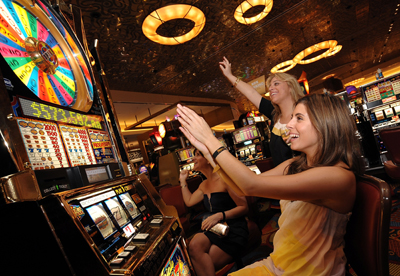
Casino entertainment have long been a staple in human culture, delivering not just entertainment but a fascinating reflection of our dreams, dreams, and concerns. From the turning reels of a slot machine to the strategic gameplay of poker, these games represent a variety of human sentiments and experiences. At their core, casino games are not just a chance to win money; they are a reflection of life itself, where danger and gain merge and fate can change in an instant.
As players convene around tables or sit in front of brightly lit machines, they participate in a ritual that transcends mere playing. These games reflect our natural desires for relationships, adventure, and the search for fortune. They also reveal deeper truths about human psychology, such as our relationship with fate and the adrenaline of risk. In exploring casino games, we reveal not only the nuances of play but also the intricate pattern of the human story, showcasing our intertwining narratives of goal and reality.
The Mind Behind Gambling
Wagering is intrinsically connected in human psychology, tapping into various emotions and wants. The excitement of taking risks is a core aspect that attracts participants, be it it’s thrill of spinning a roulette wheel or the excitement of drawing a winning hand in a poker game. This adrenaline is often compared to other forms of thrill, as the uncertainty of outcomes elicits a unique psychological response. Players often find themselves captivated by the chance of winning big, leading to an almost magnetic draw toward gambling games.
Additionally, an essential component of the psychology behind gambling is the concept of optimism and aspiration. Players often nourish fantasies of financial freedom and the luxurious lifestyle that can follow winning. This hope fuels their ongoing participation in gambling, as it provides a sense of meaning and the conviction that a life-changing win could be just one bet away. The story of overcoming odds and finding success resonates with many, strengthening their commitment to play and engage with these games.
Finally, social aspects play a significant role in gambling psychology. Casino environments are designed to promote social interaction, where players gather to share the experience of wins and losses. This shared aspect not only amplifies enjoyment but also affects behavior, as individuals often imitate the actions of others in their vicinity. The collective approval found in mutual thrill can magnify the emotional experience, making casino games a mirror of not just personal desires but also collective engagement within the gaming community.
## The Dual Nature of Risk and Reward
Casino games embody the fragile balance between danger and reward that resonates profoundly with human psychology. The rush of placing a bet is often accompanied by a jolt of energy, as participants are confronted with the possibility of winning big, yet fully aware of the possibility to suffer losses. This bipartisan experience reflects a core aspect of life: the decisions we face often come with built-in risks, and the chase for gain can drive us to make risky moves we might not normally consider. In this way, casino games mirror real-world decisions, enticing players to risk not just their funds, but also their dreams.
The allure of jackpot prizes and winnings fuels a sense of optimism, motivating players to envision a better future that could manifest from a single victorious spin of the wheel or flip of a card. This optimism can drive individuals to engage in more daring actions, encouraging them to push their boundaries in search of financial gain. However, just as in life, the outcomes of these risks can lead to both triumph and loss. The stories of both jackpot winners and those who have lost everything at the casino demonstrate the chaotic nature of luck and its significant impact on our existence.
Ultimately, the experience of engaging with gambling activities serves as a strong reminder of the nature of humanity. Every game played is loaded with the tension of uncertainty, as players weigh the gains against the risks. This dynamic not only highlights the excitement that comes with betting but also unveils the risks that come with the urge for more. As we explore the complexities of decision-making and consequence in both the casino and in life, we find that the quest for gain shapes our sense of self and lives in deep ways.
Society and Loneliness in Gambling Environment
Gambling environment is a special blend of social interaction and individual endeavor, reflecting the tensions of individual experience. Players often gather around games, sharing in the thrill of the game, celebrating wins, and commiserating over losses. This communal aspect is crucial, as it establishes a sense of community and camaraderie among diverse groups of people. Regular attendees to gaming establishments may build friendships and establish routines, turning the gambling venue into a alternative home where they experience connected to a larger community of gamblers.
However, the attraction of casino activities can also result to isolation. As players become immersed in the thrill of playing, they may withdraw from personal connections or neglect to interact with the world outside the gaming space. For some, the pursuit of a windfall can distract from genuine relationships, leading to isolation. The experience of being surrounded others yet feeling solitary is not rare, as the focus shifts from collective fun to the private stakes of each player’s journey.
This interaction of community and solitude creates a vivid tapestry that defines gaming atmosphere. kipclub It showcases the complexity of social interactions, where happiness and despair coexist. Casinos serve as both a sanctuary for social engagement and a stage for individual challenges, demonstrating how deeply connected our yearning for connection and the personal quest for fortune can be. In navigating this environment, players confront their own narratives—seeking both the rush of the game and the fellowship of fellow players, ultimately reflecting the wider spectrum of individual experience.